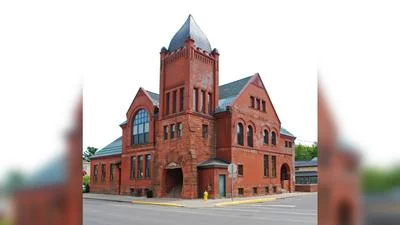Steve Cortes, CNN Political Commentator (left) & Karl Bohnak, Michigan House Representative (right) | Facebook
Steve Cortes, CNN Political Commentator (left) & Karl Bohnak, Michigan House Representative (right) | Facebook
State Representative Karl Bohnak has successfully passed a bill through the Michigan House aimed at expanding high-speed internet connectivity across Michigan, including the Upper Peninsula (U.P.). The proposed legislation, known as the Michigan Broadband Accessibility Act or House Bill 4287, is designed to enhance the effectiveness of broadband grant funds. Its goal is to extend critical internet infrastructure to more communities and residents in Michigan.
Bohnak emphasized the importance of reliable internet access in today's digital age, stating: “In today’s increasingly digital world, a lack of reliable access to the internet can place a huge burden on residents and communities at large.” He highlighted that for many households, internet connectivity is essential for telehealth care, online banking, remote work, and education. Bohnak also pointed out that the U.P. and other parts of Michigan are experiencing population declines, which he attributes partly to inadequate internet access. “What young family is going to move into a town where they have to drag their kids to the local library every time they need to get online?” he asked.
The issue of "digital deserts," areas with limited or no reliable internet access, is particularly acute in rural regions. Recent studies indicate that fewer than half of homes in some U.P. counties have dependable internet service. To address this problem, various state and federal programs have been established to incentivize broadband providers to expand into these underserved areas. However, current Michigan tax laws treat these grants as taxable income.
Bohnak's proposal seeks to create a tax exemption for all broadband grants. This would allow companies and organizations to use grant money without it being subject to taxation, thereby facilitating the expansion of high-speed internet services. The legislation has garnered bipartisan support from both Democrats and Republicans.
The bill will now proceed to the Senate for further deliberation.



 Alerts Sign-up
Alerts Sign-up